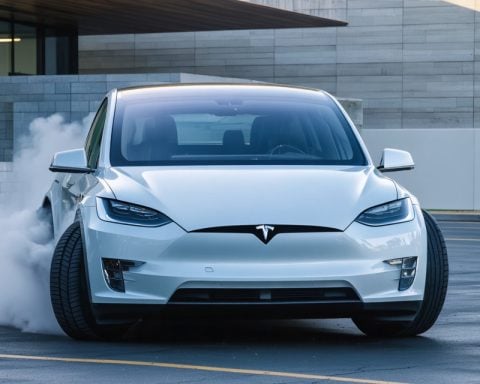Iveco Bus Leads the Charge in Sustainable Transit
Iveco Bus, part of the Iveco Group, has landed a groundbreaking contract with the BusGruppe purchasing group in Germany, aimed at enhancing public transportation with 580 electric and hybrid buses over the next five years. This large-scale initiative was set in motion by a collective of transit operators, including well-known names such as Verkehrsbetriebe Bachstein and CeBus.
Among the impressive fleet, 250 of these buses will be fully electric, contributing significantly to the sustainability goals of urban transport. The total estimated value of this contract reaches up to €235 million ($244 million), underscoring its importance in the transition to green mobility.
The agreement details the supply of 200 low-entry electric buses, along with 50 articulated electric E-way buses, each featuring advanced 69.3kWh NMC battery packs, known for their remarkable energy density. Additionally, the deal includes 150 hybrid articulated buses and 180 intercity buses, all utilizing a 360hp Euro VI Step E-compliant engine, designed for compatibility with eco-friendly fuels.
This ambitious project not only marks a significant investment in cleaner transportation but also embodies the shift towards a more sustainable future in urban mobility across Germany.
Revolutionizing Urban Transit: Iveco Bus’s Green Initiative in Germany
Overview of Iveco Bus’s Contract with BusGruppe
Iveco Bus, a leading player in sustainable transportation, has made headlines with its recent contract with the BusGruppe purchasing group in Germany. This initiative is set to deploy 580 electric and hybrid buses over the next five years, indicating a robust commitment to enhance public transit systems. The BusGruppe consists of well-known transit operators, including Verkehrsbetriebe Bachstein and CeBus, signaling strong collaborative efforts within the sector.
Features of the New Buses
The contract includes a diverse range of buses with advanced features aimed at improving urban mobility:
– 250 Fully Electric Buses: These vehicles are designed to be eco-friendly, reducing emissions and operating costs.
– Electric Bus Variants:
– 200 Low-Entry Electric Buses: Ideal for urban settings with frequent stops, these buses facilitate easy access for all passengers.
– 50 Articulated Electric E-way Buses: Equipped with 69.3kWh NMC battery packs, these buses feature high energy density, maximizing efficiency.
– Hybrid Options:
– 150 Hybrid Articulated Buses: Combining traditional fuels with electric power, these buses meet current environmental standards while ensuring reliability.
– Intercity Buses:
– 180 Intercity Buses: Powered by a 360hp Euro VI Step E-compliant engine, these buses are designed for longer routes and can utilize eco-friendly fuels.
Pricing and Financial Implications
The total estimated value of the contract reaches approximately €235 million ($244 million). This significant investment highlights the increasing financial commitment required to transition to sustainable urban mobility.
Sustainability and Impact on Urban Mobility
This collaboration not only aims at advancing cleaner transportation but also represents a broader trend in public transit investments across Europe. The shift towards electric and hybrid buses is part of a global effort to reduce the carbon footprint of public transportation systems.
Innovations and Future Trends
The deployment of these buses is a clear indication of innovative mobility solutions aimed at creating efficient, low-emission transportation systems while remaining flexible to future energy sources. As cities strive for greater sustainability, the adoption of electric and hybrid technology is expected to increase, reflecting changing consumer preferences and regulatory pressures.
Pros and Cons of Electric and Hybrid Buses
Pros:
– Reduced greenhouse gas emissions
– Lower operational costs over time
– Improved air quality in urban areas
Cons:
– Higher upfront costs compared to traditional buses
– Infrastructure development needed for charging stations
– Limited range may restrict operation without additional planning
Market Analysis
As urban populations grow, the demand for sustainable transportation solutions is expected to rise. This initiative by Iveco Bus positions it favorably within the market, driving competition towards greener alternatives.
Conclusion
Iveco Bus’s landmark contract with the BusGruppe underscores a significant shift towards sustainable public transportation in Germany. As the world increasingly prioritizes environmental responsibility, such initiatives will pave the way for innovative transit solutions across the globe.
For more insights on sustainable transportation, visit the official Iveco Group website: link name.


















